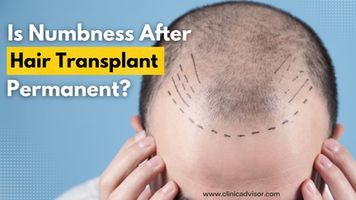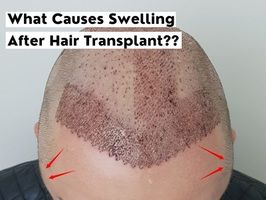
 Medically reviewed by Prof. Dr. Naci Karacaoglan
Medically reviewed by Prof. Dr. Naci Karacaoglan
What is Minoxidil?
Minoxidil is an FDA-approved drug that was initially developed to treat patients who suffer from high blood pressure and hypertension. Hair growth was one of its side effects; therefore, Minoxidil is now mainly marketed and sold as a hair growth medication. It is available in two forms: foam & solution. And you can get it in different strengths, most commonly 2% and 5% but 10% is also available.
Why use Minoxidil after a Hair Transplant?
Most people undergo a hair transplant so that they don’t have to use Minoxidil or other drugs for the rest of their lives to control their hair loss. However, many surgeons give some recommendations to their patients after a hair transplant to help stimulate hair growth such as using Minoxidil.
Some clinics even offer hair transplant packages in Turkey that include Minoxidil. So, why do some surgeons recommend using Minoxidil after a hair transplant?
Reduces the risk of shock loss
Shock loss is a term used to describe a common but temporary side effect where the patient starts to lose the non-transplanted hair a few weeks after the surgery. Many surgeons recommend Minoxidil to their patients after a hair transplant to reduce the risk of shock loss, especially in women.
Stimulates regrowth of transplanted hair
Minoxidil is a non-specific vasodilator that increases blood supply to the hair grafts. Therefore, the newly transplanted hair follicles get an increased supply of nutrients and oxygen from the blood which can potentially help them to grow faster & stronger. One medical study concluded that “Topical minoxidil may be an important adjunctive therapy during the recuperative period in patients who have undergone hair transplant surgery”. Although more research is necessary to provide more definitive details, there is enough evidence that Minoxidil will help with regrowth especially for people who are prone to genetic hair loss and have just had a hair transplant procedure.
Controls continuing hair loss
Hair transplant is aimed to restore your hair in bald or thinning areas, however it cannot stop the natural course of hair loss. Therefore, some people, especially men under 35, will have a hair transplant which never falls again. But their genetic hair loss (Male pattern Baldness) will continue. This is where the use of Minoxidil could be very helpful. For these men, It should be used on the areas which were not transplanted and may continue to fall.
In addition, for men and women, it is more likely that some existing hair might thicken up a little and some dormant follicles might start growing again.
How to use Minoxidil after a Hair Transplant?
If you are planning to, or recently have undergone the procedure, you should ask your doctor on how to use Minoxidil after a hair transplant. Your doctor may also advise you to use Minoxidil after your beard transplant.
Surgeons may have different methods on how to use it and your treating surgeon would be the best one to guide you through it.
Some surgeons recommend starting the use of Minoxidil as soon as one week after the operation and continuing the use for four to six months. But most surgeons suggest to their patients to start using Minoxidil, starting one month after the hair transplant to allow the hair grafts to settle in before introducing any external factors
You should use minoxidil once a day on your scalp. You may be instructed to use either 2% or 5% Minoxidil. However, the 5% increases hair growth more than the 2% by 45%.
What are the Side effects of using Minoxidil after a Hair Transplant?
Although Minoxidil is sold off the counter without a prescription it does have some common side effects, so if you develop one or more of these symptoms consult your doctor. Also, before using, ask your doctor if it is safe to take with any other medications you might be taking.
Burning, irritation, skin rash, redness (more common in its solution form rather than the foam because of its higher alcohol content)
Swelling
Headaches
Hair growth on other sides of the body, especially in women.
FAQs:
Is it necessary to use Minoxidil after a hair transplant?
It is not exactly ‘necessary’ to use Minoxidil after a hair transplant but it can make a significant difference in preventing shock loss, increasing blood supply to the scalp therefore enhancing growth of the newly transplanted follicles and controlling the continuing natural hair loss cycle. So, your results might look a bit better with Minoxidil use than without.
When to stop minoxidil after hair transplant?
Minoxidil can be used for six months after the hair transplant or until your surgeon recommends it.
Should I use oral minoxidil after hair transplant?
You should use topical Minoxidil after a hair transplant. It is safer and acts faster, unless your doctor recommends otherwise.
Can I use Finasteride and Minoxidil after a hair transplant?
You should ask your doctor before combining drugs. It is generally recommended to take just Minoxidil after a hair transplant.
Can I use Minoxidil on the recipient area?
Yes, in fact most surgeons recommend the use of Minoxidil on the recipient area starting one month after your hair transplant.
Sources:
https://pubmed.ncbi.nlm.nih.gov/3558912/
https://www.drugs.com/mtm/minoxidil-topical.html
https://www.ncbi.nlm.nih.gov/pmc/articles/PMC6691938/






Share Your Opinion, Please